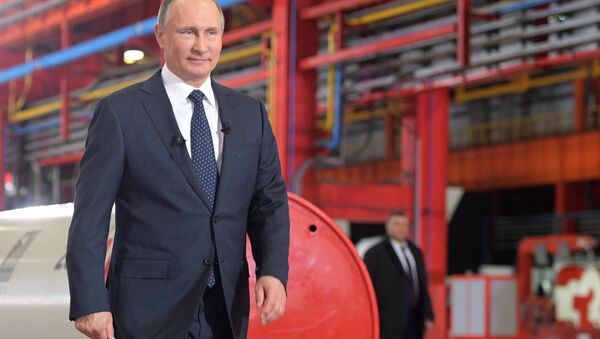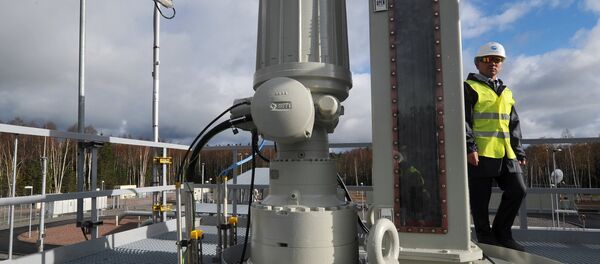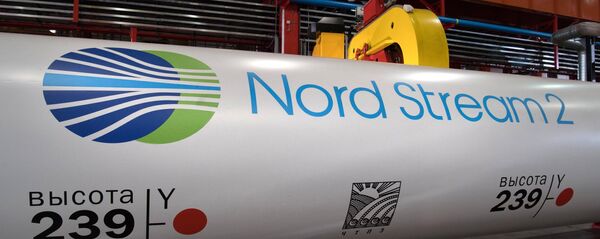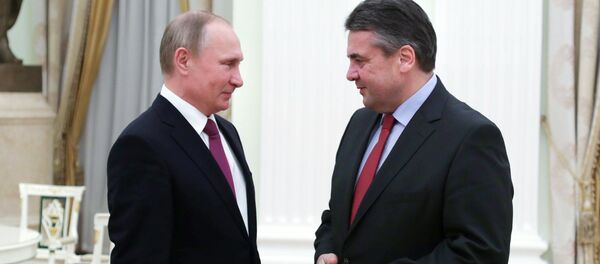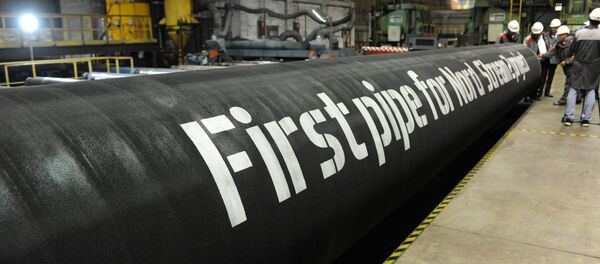Ukraine's efforts to prevent the implementation of Nord Stream 2 appears to be nothing more than a tempest in a teapot as the project continues to move forward.
On April 5 Ukraine's Verkhovna Rada adopted a resolution "on the inadmissibility of construction of the North Stream 2 gas pipeline and the Russian Federation's monopoly on the gas markets of the world" calling upon the international community to step in and take measures.
"The aftermath of the project goes far beyond the limits of just commerce or internal affairs of the EU countries, and will lead to an energy crisis, economic and political destabilization of Europe as a whole," the document claimed.
However, the same day the Finnish government granted its approval to the construction of the pipeline, which would go about 375 kilometers through Finland's economic zone in the Baltic Sea. Earlier, on March 27, Germany gave a green light to Nord Stream 2 AG, the operator of the Nord Stream 2 project.
The European Commission has seemingly lent its sympathetic ear to Kiev's plea by stating Friday that the EU does not support the Nord Stream 2 project, but abstained from imposing any sanctions on the endeavor.
"We believe that the Nord Stream 2 does not encourage the diversification of gas supply. That is why if the pipeline is built it will not be supported by the EU and the European Commission, in particular," said Dominik Ristori, head of the European Commission's energy department, adding that the EU was not considering any restrictions concerning the pipeline.
For his part, Lithuania's Energy Minister Zygimantas Vaiciunas showed his full support to Ukraine's position during his recent visit to Kiev.
Speaking to Baltic News Service (BNS) Vaiciunas claimed that Nord Stream 2 was nothing short of Russia's geopolitical project, which should not become reality. He further opined that the endeavor should be subjected to the so-called "third energy package" — the bloc's internal rules for the EU gas and electricity market.
In addition to the Baltic States, Poland has repeatedly called upon Washington to nip the pipeline project in the bud.
Washington echoes Ukraine, Poland and the Baltic States' stance. During the April 3 meeting with the presidents of Lithuania, Latvia and Estonia in the White House, Donald Trump lambasted Germany for its support to Nord Stream 2.
"Germany hooks up a pipeline into Russia, where Germany is going to be paying billions of dollars for energy into Russia. And I'm saying, 'What's going on with that? How come Germany is paying vast amounts of money to Russia when they hook up a pipeline? That's not right'," Trump said.
Previously, on March 21, US State Department spokeswoman Heather Nauert said that the White House opposed the Russia-led project as "it would provide Russia another tool to pressure European countries, especially countries such as Ukraine."
She dropped a hint that Washington may impose sanctions on European firms involved in Nord Stream 2, referring to the Countering America's Adversaries Through Sanctions Act (CAATSA), signed by Trump into law on August 2, 2017.
"We don't tend to comment on sanctions actions but we've been clear that firm steps against the Russian energy export pipeline sector could — if they engage in that kind of business — they could expose themselves to sanctions under CAATSA," Nauert said.
Speaking to Bloomberg, Joachim Pfeiffer, a senior lawmaker from German Chancellor Angela Merkel's Christian Democratic Union party, dubbed Trump's statement "fake news."
According to the media outlet, politicians from Merkel's coalition "ridiculed" Trump's words, suggesting that by cracking down on Nord Stream 2, the US president was apparently trying to promote America's liquefied natural gas in the EU market.
"After his [Trump'] unsuccessful attempt to impose punitive tariffs on steel and aluminum in Europe, he ignites the next stage of escalation in order to safeguard national export interests," Timon Gremmels, a German parliamentarian told the media source.
As Sputnik contributor Dmitry Lekukh suggested in his recent op-ed, the major addressee of Kiev's vocal protests over Nord Stream 2 is Ukraine's population.
"The appeal of the Kiev leadership to the world is in fact a tool to draw an alternative reality for the internal audience. In this alternative reality, [Kiev] is fighting against the eastern 'aggressor' [Russia] and usually wins," Lekukh remarked ironically.
Nord Stream 2 is a joint project run by Russia's Gazprom together with France's Engie, Austria's OMV AG, Anglo-Dutch Royal Dutch Shell, and Germany's Uniper and Wintershall. It will deliver 55 billion cubic meters of Russian natural gas per year to the EU, through a pipeline across the Baltic Sea to Germany.
The views and opinions expressed by the contributors do not necessarily reflect those of Sputnik.

